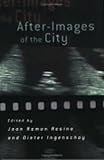After-Images of the City / ed. by Dieter Ingenschay, Joan Ramon Resina.
Material type: TextPublisher: Ithaca, NY : Cornell University Press, [2018]Copyright date: 2003Description: 1 online resource (304 p.) : 24 halftonesContent type:
TextPublisher: Ithaca, NY : Cornell University Press, [2018]Copyright date: 2003Description: 1 online resource (304 p.) : 24 halftonesContent type: - 9781501729669
- 809/.93321732 21
- PN56.C55 A34 2003
- online - DeGruyter
| Item type | Current library | Call number | URL | Status | Notes | Barcode | |
|---|---|---|---|---|---|---|---|
 eBook
eBook
|
Biblioteca "Angelicum" Pont. Univ. S.Tommaso d'Aquino Nuvola online | online - DeGruyter (Browse shelf(Opens below)) | Online access | Not for loan (Accesso limitato) | Accesso per gli utenti autorizzati / Access for authorized users | (dgr)9781501729669 |
Frontmatter -- Contents -- Illustrations -- Acknowledgments -- Preface -- CHAPTER ONE. The Concept of After-Image and the Scopic Apprehension of the City -- CHAPTER TWO. City Future in City Past: Balzac's Cartographic Imagination -- CHAPTER THREE. London: Tomorrow's Yesterday, Future Images of the Past -- CHAPTER FOUR. Berlin 2000: "The Image of an Empty Place" -- CHAPTER FIVE. From Rose of Fire to City of Ivory -- CHAPTER SIX. Bees at a Loss: Images of Madrid (before and) after La colmena -- CHAPTER SEVEN. The World in Our Head: Images and After-Images of the City in the Works of Albert Cohen -- CHAPTER EIGHT. Tijuana: Shadowtext for the Future -- CHAPTER NINE. After-Images of the "New" New York and the Alfred Stieglitz Circle -- CHAPTER TEN. The City Vanishes -- Notes -- Works Cited -- Contributors -- Index
restricted access online access with authorization star
http://purl.org/coar/access_right/c_16ec
Criticism on the textual and iconographic construction of the city is extensive, yet the problem of historical change in representations of "the urban" has received little attention. Believing traditional accounts are limited by their reflection of a specific historical moment, Joan Ramon Resina and Dieter Ingenschay focus, by contrast, on transition. In essays written for this volume, scholars of literary and visual studies, the history of architecture, cultural theory, and urban geography explore the ways perceptual or conceptual paradigms of the city supersede or replace others, while at the same time retaining the "after-image" of what went before.The writers touch on a wide variety of issues related to contemporary urban cultures as they journey through cities including New York, Barcelona, Madrid, Paris, Tijuana, Berlin, and London. Drawing on the work of Roland Barthes, Walter Benjamin, Camilo José Cela, Honoré de Balzac, and Alfred Stieglitz, their approach is broadly cultural rather than technical. After-Images of the City takes into account the intrinsic instability of the image and reveals that representations of the modern metropolis cannot be fixed in time and history.
Mode of access: Internet via World Wide Web.
In English.
Description based on online resource; title from PDF title page (publisher's Web site, viewed 26. Aug 2024)


